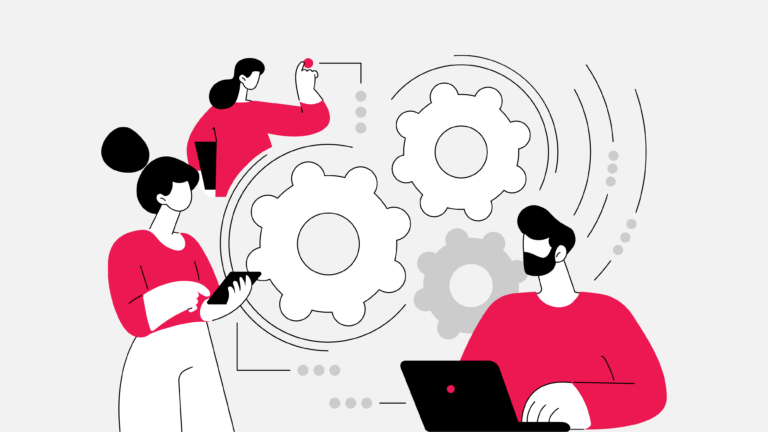4 Highly Popular Job Roles to Choose From as a Artificial Intelligence Programmer
AI relies on data and algorithms, creating many opportunities for people with the right skills. LinkedIn reports a 74% increase in demand for AI programmers over the past four years.
Key roles in the AI field include Machine Learning Engineers, Data Scientists, AI Product Managers, and Robotics Engineers. This article will explain the skills needed, duties, and impact of these jobs in advancing AI. If you’re thinking about a career in AI, keep reading to learn about four important job roles you should consider.
Machine Learning Engineer
Key Responsibilities
As a Machine Learning Engineer, you’ll design and develop machine learning systems. Your key responsibilities will include running experiments and implementing algorithms tailored to specific projects. Ensuring scalability in production environments is crucial. You will also have to collaborate with data engineers to create robust and efficient AI applications.
Required Skills
To excel as a Machine Learning Engineer, you need a strong foundation in computer science fundamentals. It includes programming, statistical modeling and others. Here are some crucial technical skills you must learn.
- Strong grasp of algorithms, data structures, and deep learning frameworks (e.g., PyTorch, TensorFlow)
- Proficiency in SQL and database management
- Experience with cloud computing platforms
- Optimization of machine learning models for performance
- Version control using Git
- Knowledge of natural language processing (NLP) techniques
- Understanding of reinforcement learning algorithms
Data Scientist
Key Responsibilities
The role of a data scientist engineer in AI is expansive and dynamic. you’ll automate data collection, identify trends, and develop predictive models. You’ll also focus on data visualization to present insights clearly and effectively. Solving complex business problems with data-driven solutions and collaborating with cross-functional teams are key aspects of your role.
Required Skills
To excel in this role, you must possess a blend of technical and analytical skills. However, the core skills of an AI developer job description are as follows.
- Proficiency in programming languages: R, SQL, Python
- Familiarity with Scala, Java, or C++ is advantageous
- Strong mathematics skills, especially in statistics and algebra, for effective problem-solving
- Experience in data mining, machine learning, and operations research
- Knowledge of business intelligence tools like Tableau and data frameworks such as Hadoop.
AI Product Manager
Key Responsibilities
Apart from your core role as an AI software developer, you’ll look after the development and implementation of AI-driven products. This will include understanding market trends and customer needs to align with company goals, formulating effective strategies. Collaborating with cross-functional teams to ensure solutions meet customer expectations and organizational objectives is essential. Additionally, managing the product life cycle, from conception to launch, involves coordinating with engineers, data scientists, etc. is your responsibility.
Required Skills
To thrive as an AI Product Manager, you need a robust set of skills. Technical understanding of AI, machine learning, and product development processes is crucial along with the key skills such as:
- Proficiency in computer vision frameworks such as OpenCV for image and video analysis
- Advanced understanding of natural language processing (NLP) libraries like NLTK and spaCy for text data analysis
- In-depth knowledge of reinforcement learning algorithms
- Proficiency in designing scalable ML pipelines
- Ability to perform model evaluation and validation
- Knowledge of ethical and regulatory considerations in AI
Robotics Engineer
Key Responsibilities
Artificial intelligence software programmers are often hired as robotics engineers too. In this role, you’ll focus on integrating diverse systems including mechanical, electrical, and computational components. You’ll collaborate extensively with cross-functional teams to optimize robots for various environments and tasks, enhancing their functionality and versatility
Required Skills
But these are the key skills you will have to focus on:
- Skills in top 10 programming languages like C++, Python, and MATLAB.
- Sensor technologies like LiDAR, cameras, and IMUs (Inertial Measurement Units) for perception and localization
- Familiarity with mechanical design and CAD (Computer-Aided Design) software for designing robot components and assemblies
- Robot motion planning and trajectory optimization.
- Proficiency in simulation tools like Gazebo or V-REP for testing and validating robotic algorithms and systems
Conclusion
As we reflect on the complexity and opportunities within AI development, it becomes clear that the field is large, with a promising future for those ready to embark on this career path.
The significance of AI in propelling businesses and operations to new heights is undeniable, marking the importance of cultivating a workforce adept in navigating its challenges.
For aspiring professionals and organizations alike, the journey into AI development is not just about harnessing new technologies; it is about shaping the future.
With a steadfast commitment to skill development and a keen understanding of the AI landscape, the potential to contribute meaningful innovations and solutions is boundless.
Looking to apply for any of the above roles? We can help you out.
Contact us now to begin!





